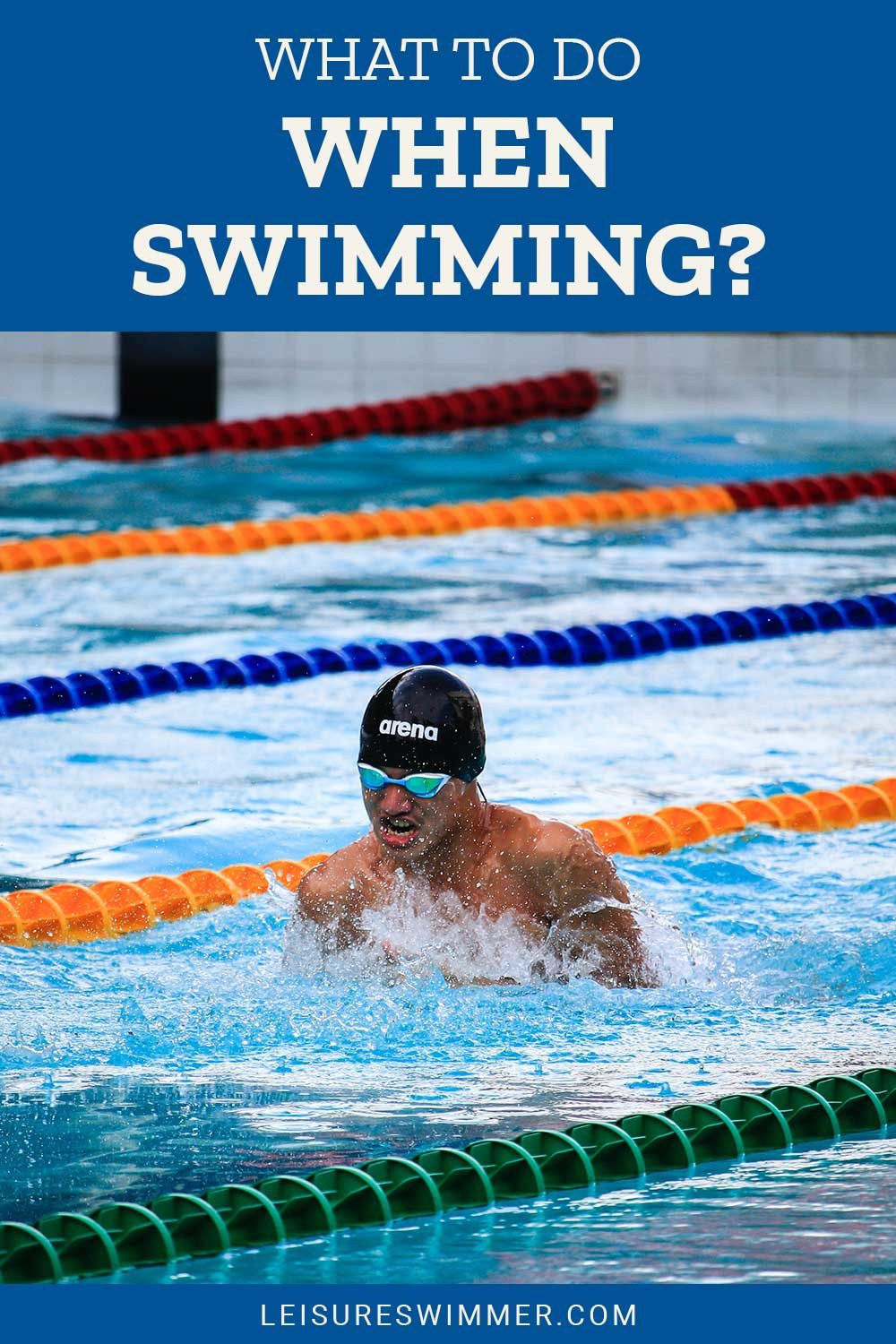What To Do When Swimming?
We may earn commissions for purchases made through links on our site. Learn more on our about us page.
Swimming can be for pleasure, a professional career, or for workout benefits. There are games that can be played with the family, floating devices for leisure, and toys designed to create fun in the pool.
Then there is the pursuit of becoming the best in the sport; the Olympic athletes will push their bodies to the limit and work to build themselves into the top athletic versions of themselves.
Then you have the health-conscientious adults that use the pool for recreation and to maintain their physical health.

What are the Five Rules for Swimming?
There are going to be more than five rules that a swimmer should always be aware of in the pool; the first and most important is to keep track of your breathing. Having a healthy pace in which to breathe will aid any athlete in their pursuit of excellence.
Another element to keep track of is hydration levels; just because you are in water does not mean you are not perspiring while working out. Be sure to have some form of hydration; electrolytes from sports drinks like Gatorade are designed to keep athletes hydrated.
Here is a short list of three additional rules for swimmers to be aware of:
- Read the rules of the pool and be sure to follow safety regulations to avoid injury
- Do not just jump in alone; even adults will make mistakes, and there is safety in numbers.
- Take lessons if you need to; there is no shame in getting professional help.
What are the Safety Tips for Swimming?
The first and most crucial safety skill will be to keep attention on your breathing; the biggest threat to a swimmer’s health is drowning, which only requires a shallow depth.
As with most pools, there will be regulations that will restrict a swimmer from running or diving into certain ends of the pool.
Other safety tips include, as mentioned above in the rules section, keeping hydrated; there is going to be a risk of death if cramping occurs in the middle of an exercise. Another safety tip is to maintain a line of sight with the lifeguards, just in case of an incident.

How Can You Practice Swimming?
There are multiple ways to practice swimming, one of which is perfect for beginners.
Using a kickboard will help a person teach their body to stay flat in the water and to keep their body in a straight line as they move down the lane, all while providing a flotation device to help with confidence.
There are also plenty of child’s, teenager level, and adult swimming lessons available at most recreation centers and local gyms that will provide a swim coach or trainer that will guide you through the learning process.
There will also be weight-lifting workouts that can isolate and strengthen certain parts of the body, thus improving one ability to tread water.
What Should You Know Before You Start?
The most important thing to know is to stay relaxed and not panic when submerged in the water, and this goes along with breathing because quick, anxious breathing will cause issues in the pool.
There will also be the knowledge of keeping yourself symmetrical in the pool, which will be the critical point in staying straight in your lane.
Otherwise, know the rules and the pool schedule; doing so will save you time and from possible injury. Then keep in mind that swimming can be a fun recreation and needs you to remember a towel.
What Should You Not Do While Swimming?
Panic, if it is your first time, do not panic when submerging, putting your head underwater. Take it slow, do not rush into the pool; take your time and sit on the steps and start in the hot tub.
Another essential detail is not to be afraid to ask for help during lessons; letting a trainer know you are struggling is why you’re there.
Something to consider: do not overdo it and end up hurting yourself. Don’t forget to start with little kicks; keep it simple the first time.
Final Thoughts on What to do when Swimming
Swimming is one of those activities that will be a rare combination of beneficial and fun, which comes out in the activities you can participate in after you learn how to swim. There are games like Water polo and competitions like diving or water dancing if you are inclined.
Then you have the recreational benefits that come with swimming, learning and mastering the four swimming techniques, and becoming a breathing and cardiovascularly proficient human being.
There will be things you will need to be aware of when entering the pool: the rules, where the lifeguard is, and your limits when it comes to holding your breath.


